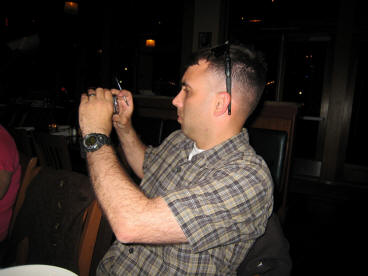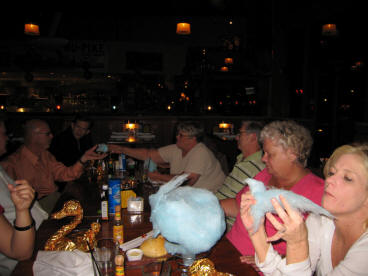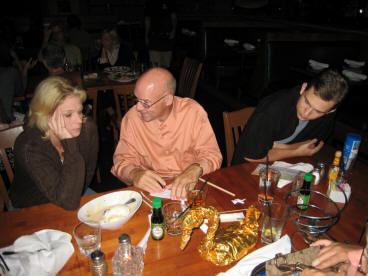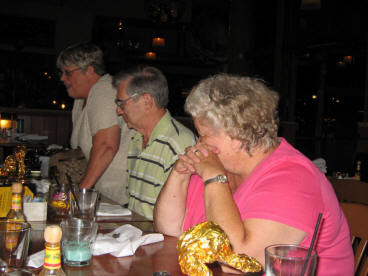We Promised To Return To Gladstone's When Pete Got Home; We Did!
We remember the going away party!

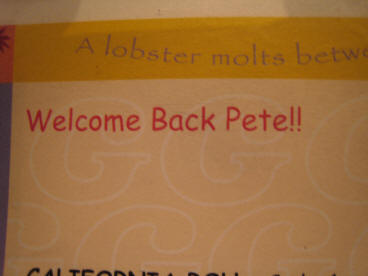
Pete was back on the menu again!
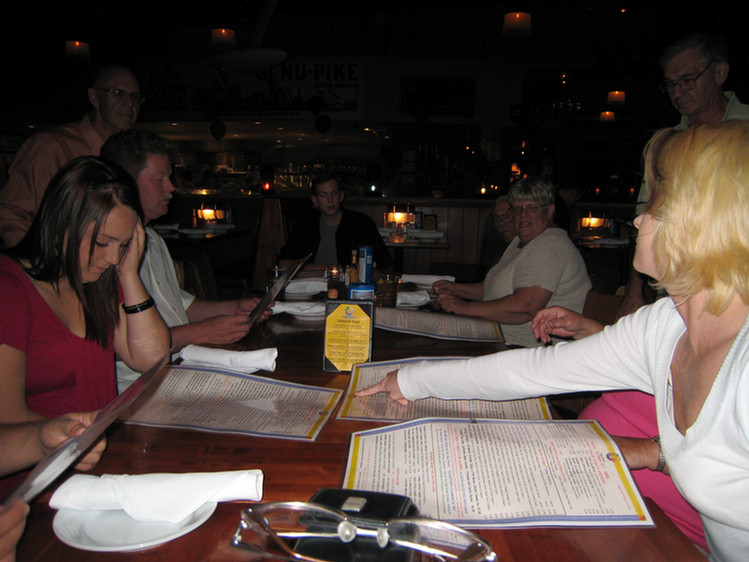
There was a crowd

Ralph, Alyce, Pete and Lisa begin to examine the menu's

No food will go un-eaten, Zack is here!
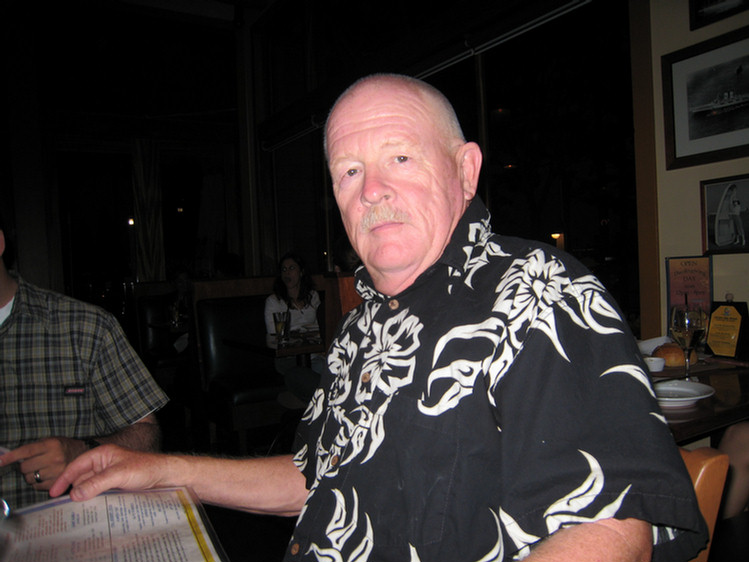
Head alcohol taster at your pleasure.... Pumpkin-Tini anyone???

The sounds of orders being placed drowned out the background music!
The Toast Is Made!
Did You Know? - The practice of toasting originated in Ancient Greece, at a time when fear of poisoning was a significant concern. To put guests at ease, the host would pour the guests' wine from a common decanter, take the first drink to demonstrate its safety, then raise his cup to the guests and invite them to drink in good health.
The custom of touching glasses also eased concerns about poisoning, since clinking glasses together would cause each drink to spill over into the others.
The word 'toast' became associated with the custom in the 17th century, based on a custom of flavoring drinks with spiced toast. The word originally referred to the lady in whose honor the drink was proposed, her name being seen as figuratively flavoring the drink

Clink clank clink!

More clanks!
Zack Seems To Be With All The Beautiful Ladies!


Meanwhile At The Other End Of The Table

Mitch and Greg keep the north end of the table under control!
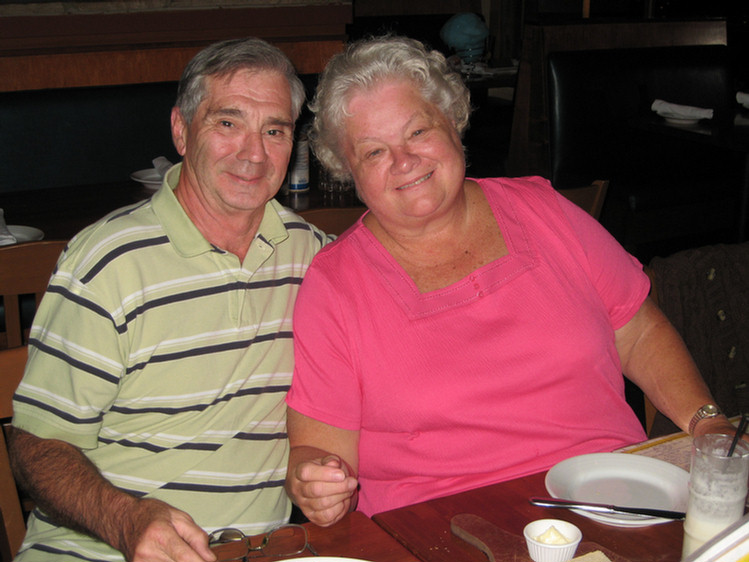
The happy Mom and Dad... Pete is home safe!
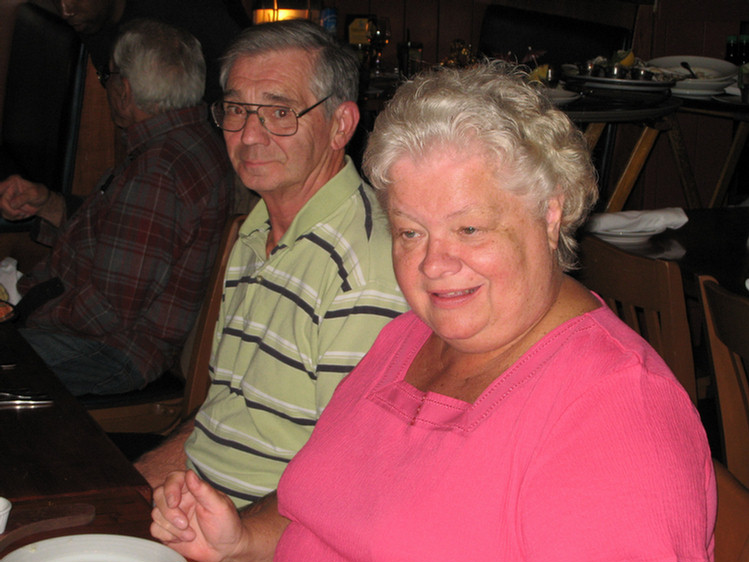
It Was A Beautiful Evening On The Waterfront
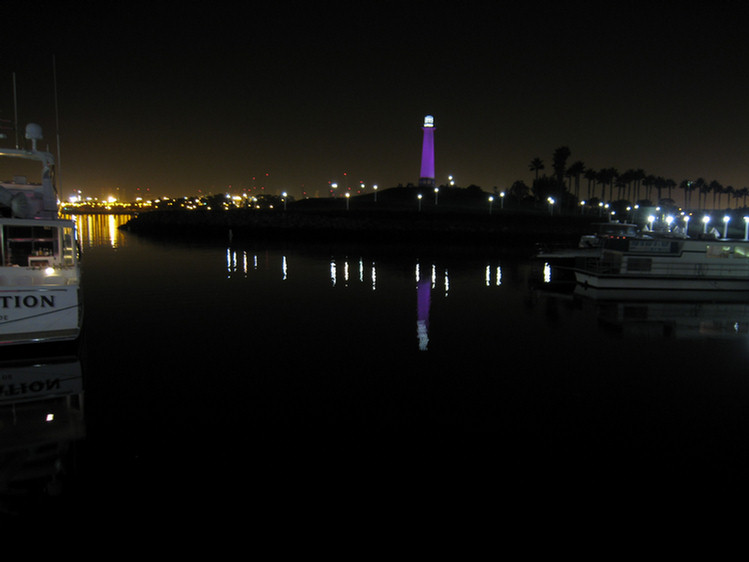
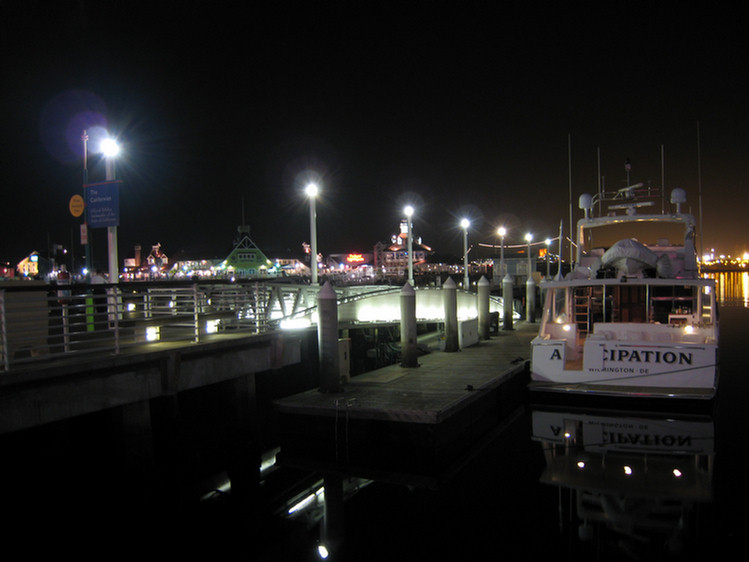
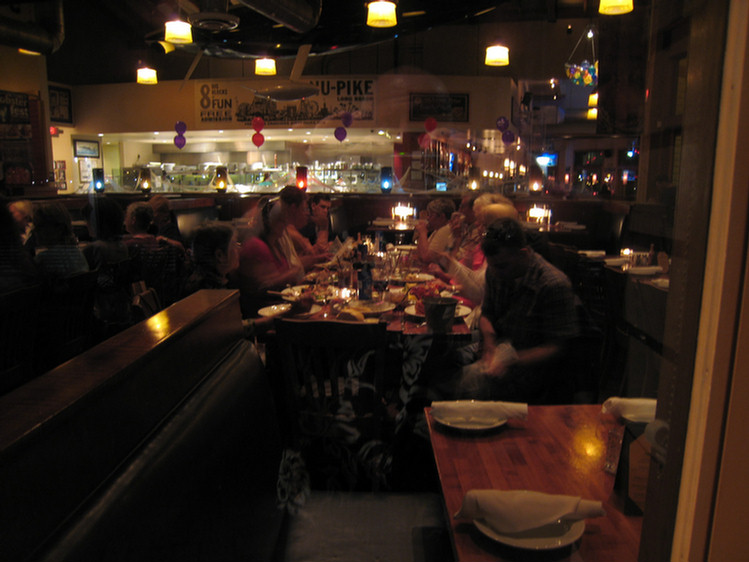
The Party Continues

Pete forgot his glass!

Grandma looks on in disbelief... or is it approval???

Zack has been too close to Grandma Liles for too long!

There he goes again, he has the girls in tow!
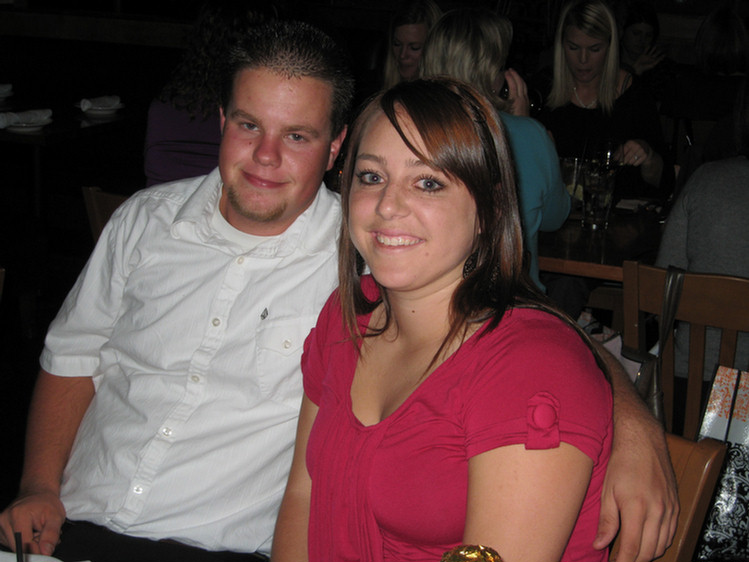

The stories abound!

Ralph and Dave share stories
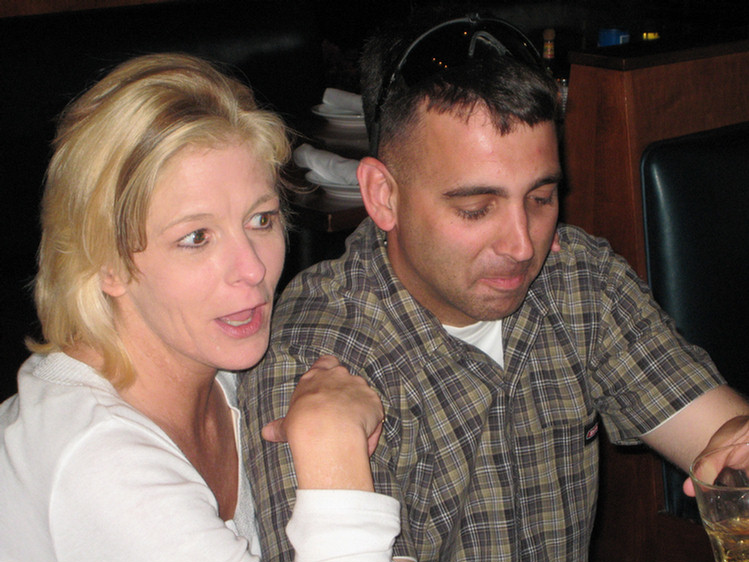

Someone Ordered Blue Cotton Candy!
Did You Know? - Cotton candy (American English), candy floss (British English / Hiberno English), or fairy floss (Australian English) is a form of spun sugar. Since it consists of mostly air, servings are large. Many people consider eating cotton candy part of the quintessential experience of a visit to a fairground or circus.
The most popular color of cotton candy is pink, though any color can be made. Eating cotton candy is often considered only one part of its allure; the second part is the act of watching it being produced in a machine
- USA celebrates National Cotton Candy Day on December 7th.
- In Greece and Israel it is known as "old woman's hair" albeit in their respective languages.
- In India and Pakistan, it is known as "doll's hair".
- In France, it is called Barbe à papa, which means "Papa's beard".
- In Iran, it is called پشمک, which means "wool-like".
- In the Netherlands, on Queen's Day (April 30) orange cotton candy is sold everywhere. The Dutch word for it is "spinned sugar".
- In Thailand, it is called ขนมสายไหม, which means "silk-candy".
- In Germany it is known as "sugar cotton".
- In Serbia it is known as šećerna pena, which means "sugar foam"
- In Croatia it is known as šećerna vuna, which means "sugar wool"
- In Malaysia's Bahasa Melayu, it is known as 'gula kapas', which means 'sugar cotton'.
- In Chile it is known as "algodón de azucar", which means "sugar cotton"

Even Grandma partakes of the blue magical elixir!
Dessert Time, Yeah!!
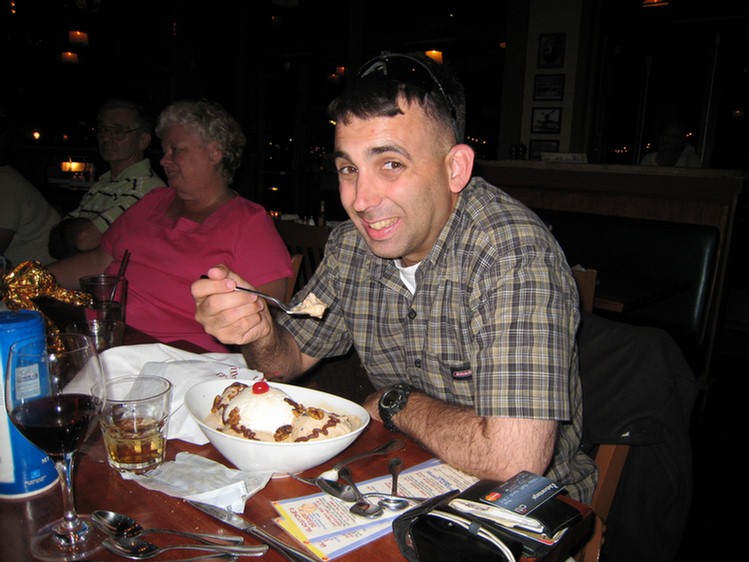
OK, dessert time!

One heck of a story going on here!
What Is Greg Up To???

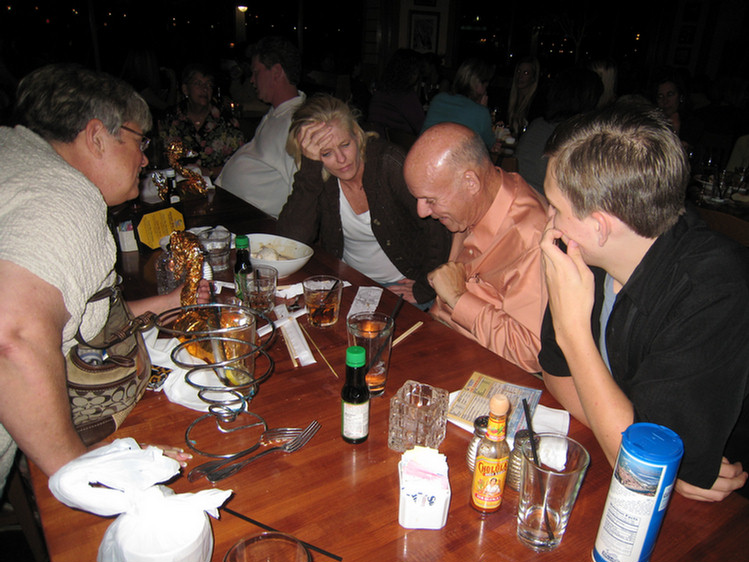
How did he do tha???
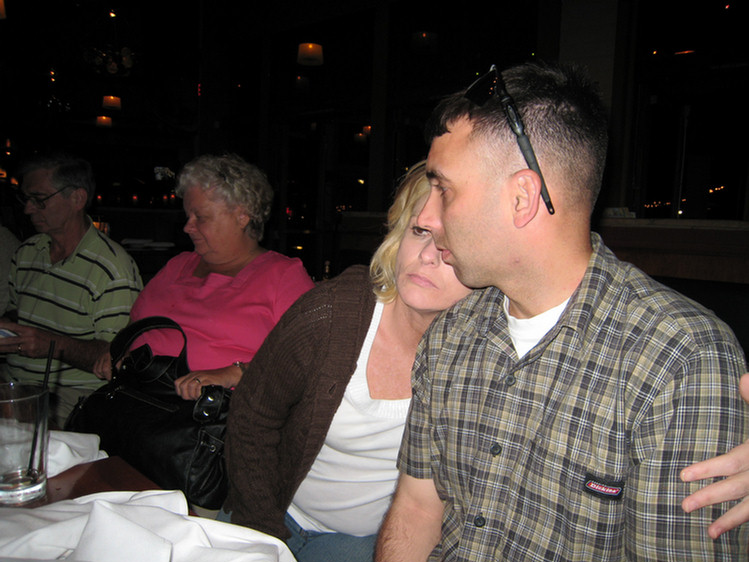
Someone is tired!
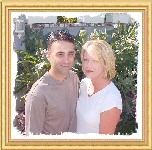 Sergeant Peter J. Chartier
Sergeant Peter J. Chartier 



